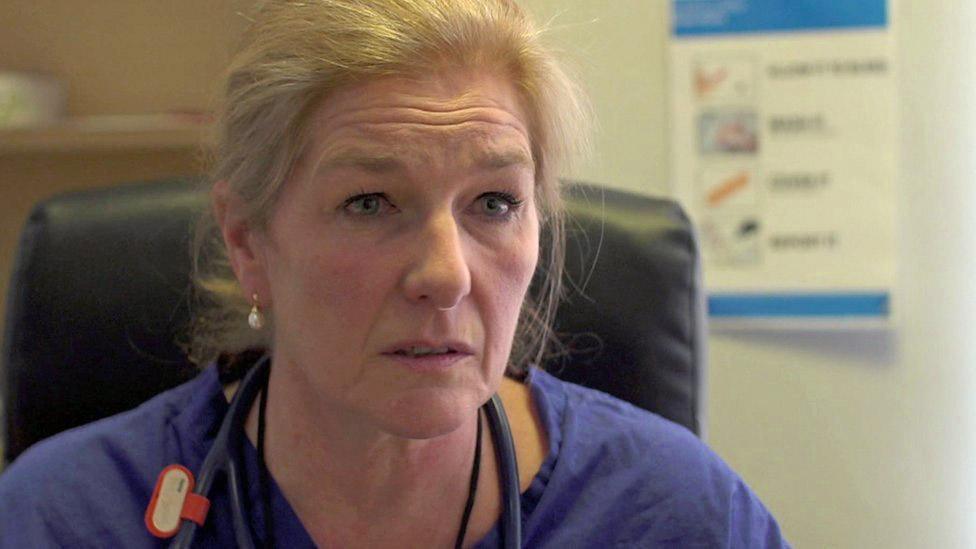Coronavirus: How GPs have stopped seeing most patients in person
- Published
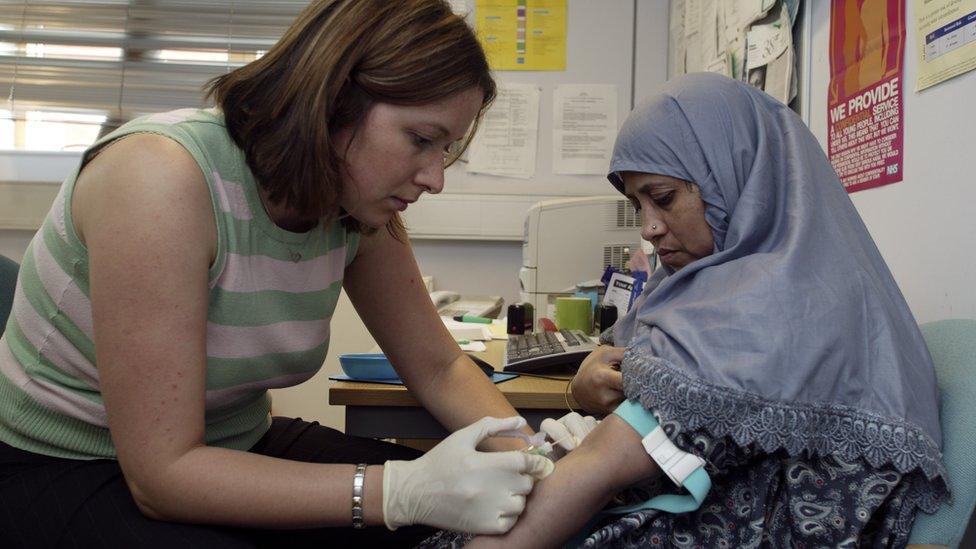
GPs are seeing just seven in every 100 patients face-to-face because of the coronavirus outbreak, following a "remarkable" shift to online and telephone appointments across England.
Fewer than 1% of appointments were done via video link last year, with 80% in person, BBC analysis shows.
But the Royal College of GPs (RCGP) said that had been turned on its head because of social distancing.
Its chair said most people were "pretty happy" with phone appointments.
Age UK has, however, urged doctors not to drop home visits and to seek out vulnerable patients "proactively".
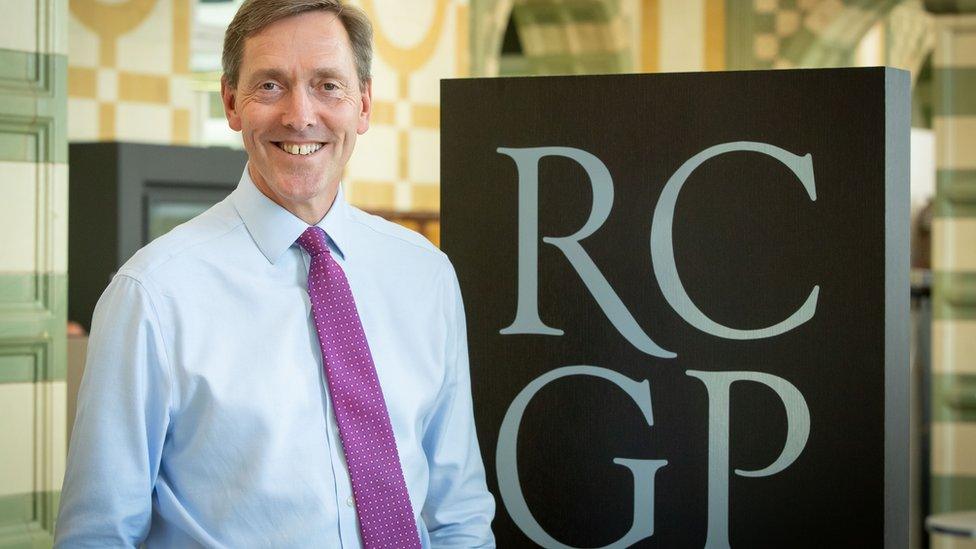
Professor Martin Marshall, who chairs the Royal College of GPs, said practices were adapting
Professor Martin Marshall, chairman of RCGP and whose own GP surgery is in Newham, east London, said around 40% of patients would normally be triaged before booking an appointment.
Now all patients are initially assessed on the phone before booking either a call or video link with a doctor.
He said: "The GP profession has changed dramatically in just three weeks.
"Now 100% are triaged and around 7% or 8% are face-to-face.
"Most of the consultations are taking place on the telephone rather than video link.
"People are pretty happy with doing assessments over the phone and they are proving effective.
"Who would have thought this 150-year-old technology would still be just as useful today?"
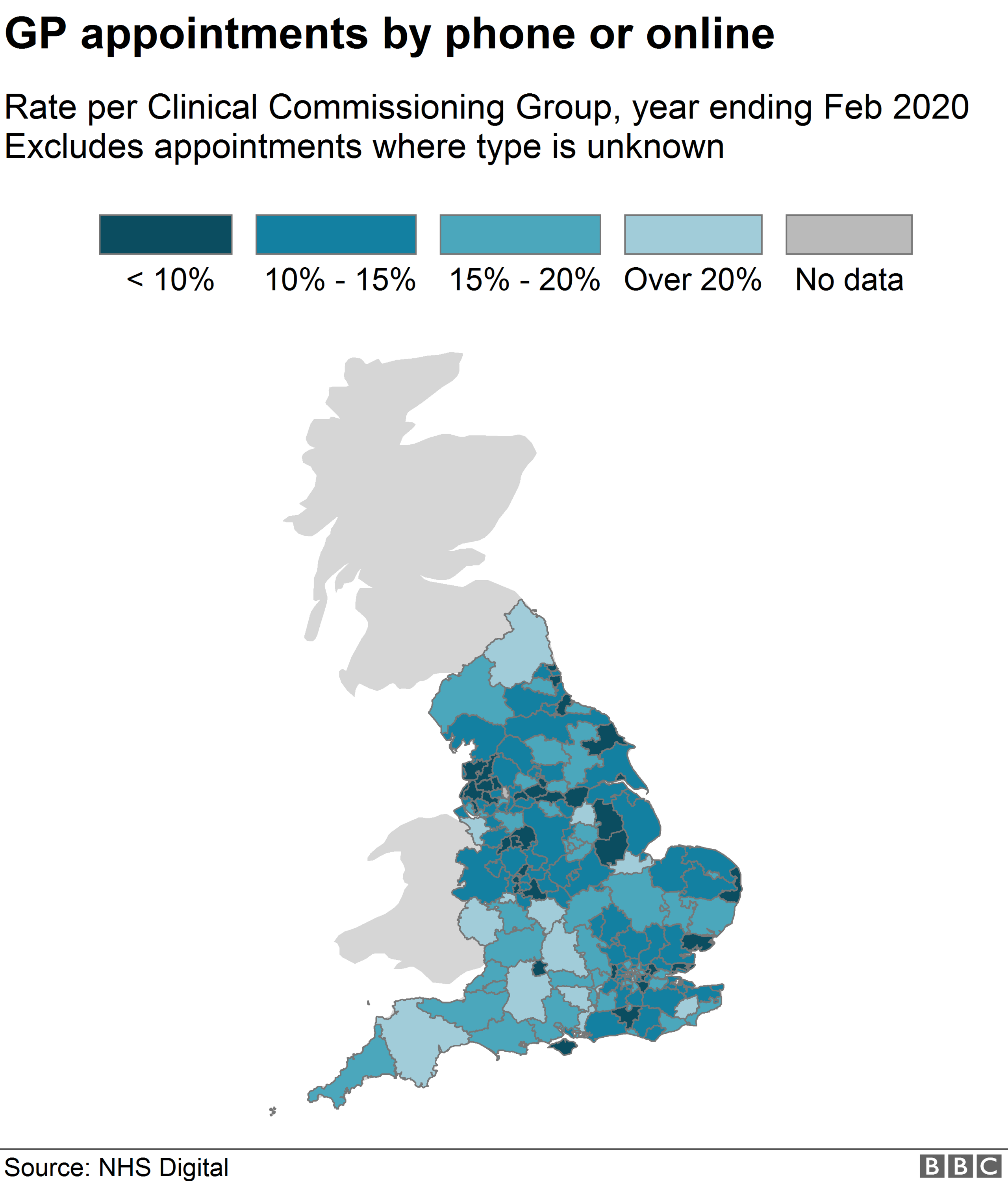
He said there were occasions where a video appointment was beneficial, particularly in the case of assessing skin rashes.
But with people able to email in pictures of the affected area, he said phone calls have been used in around 90% of cases.
Last year, two thirds of all regional NHS commissioning areas carried out no video call appointments, NHS data shows.
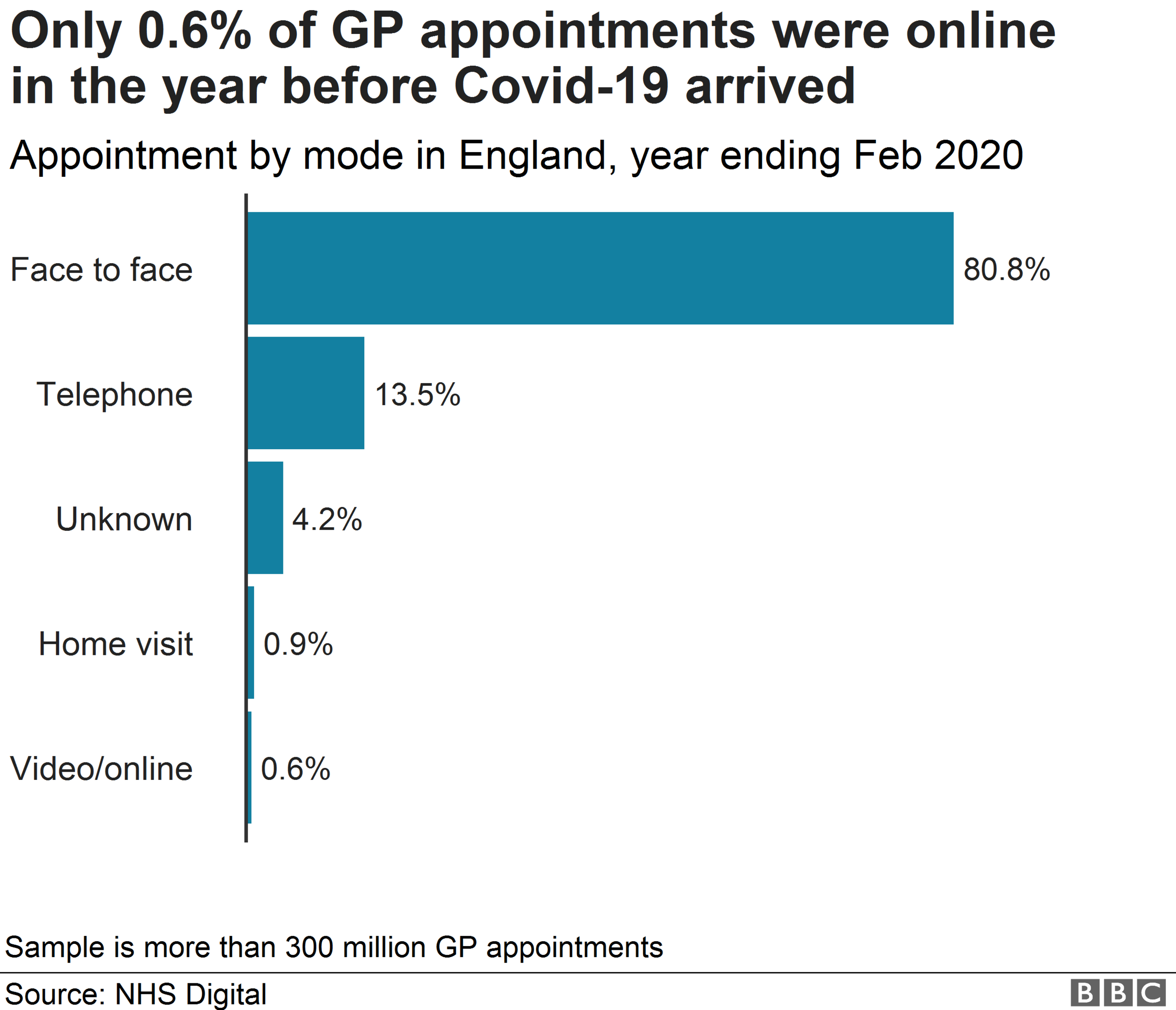
"The big question is which elements do we want to embed in our practices in the future?" Prof Marshall said.
"I don't see us doing all of our consultations over the phone or online, but certainly up to 50% is possible."
There are still occasions where patients need to attend a practice in person, such as where blood pressures or oxygen saturation needs to be read, he said.
Regional NHS areas are establishing "hot and cold" practices to mitigate the risk of infection.
Hot practices assess people with clear Covid-19 symptoms only.
In more rural areas, this can take the form of a single room in a surgery. In bigger areas it can be several surgeries.
Though Prof Marshall said just as many precautions were being taken at cold sites.
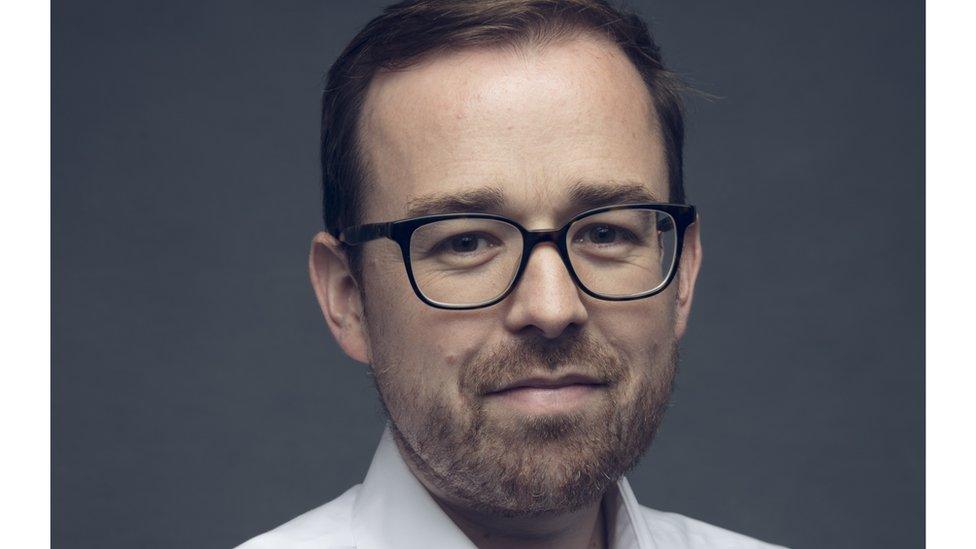
Age UK's Tom Gentry has urged practices to be proactive in calling vulnerable patients.
Concerns have been raised that people who may not have access to smartphones or a computer will be excluded from seeing their GP during the crisis.
Elderly needs charity Age UK has urged practices to be "proactive" in contacting people on their registers known to have underlying health conditions.
Senior health influencing manager at the charity Tom Gentry said: "Surgeries have a lot of information at their disposal. Using that, they need to make active care plans for people to enable them to feel supported.
"It's about not waiting for people to deteriorate and it's about reaching out to them first."
Mr Gentry said that surgeries should also not discount the use of home visits, providing adequate precautions are taken.
"No one should be told outright that they should not be visited in their own home," he said.
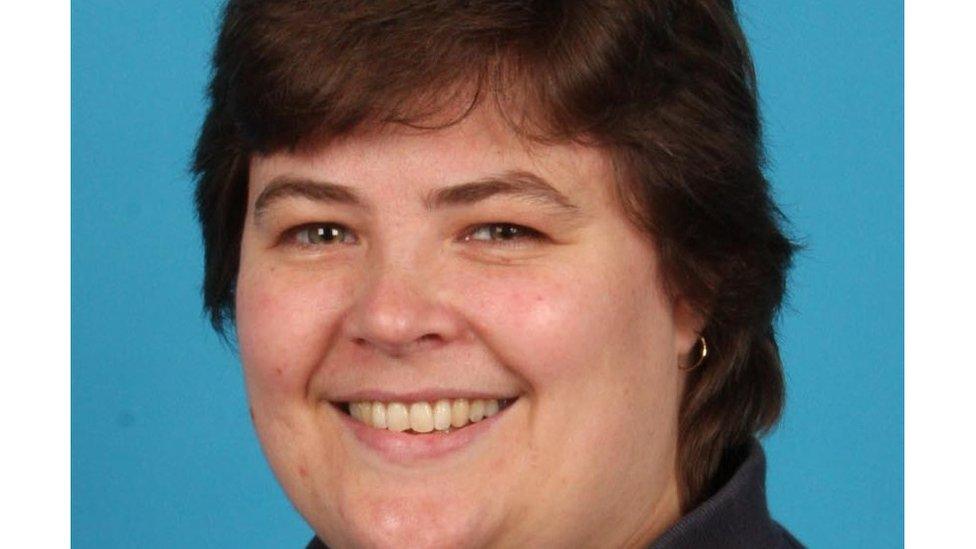
Sue Sharp received a video call from her doctor last week without her booking an appointment.
Many GP practices have already adopted the proactive approach.
Taxi firm administration assistant Sue Sharpe from Calne, Wiltshire, received a video call from her GP last week as she has rheumatoid arthritis, Sjogren's syndrome and multiple myeloma.
"She noted that I have been unwell recently and asked whether or not I was expecting further intervention from my specialist consultant," said Mrs Sharp.
"When I said that I was due a trip to the hospital as a day patient she asked whether I had transport for the journey, or did I require any help getting there.
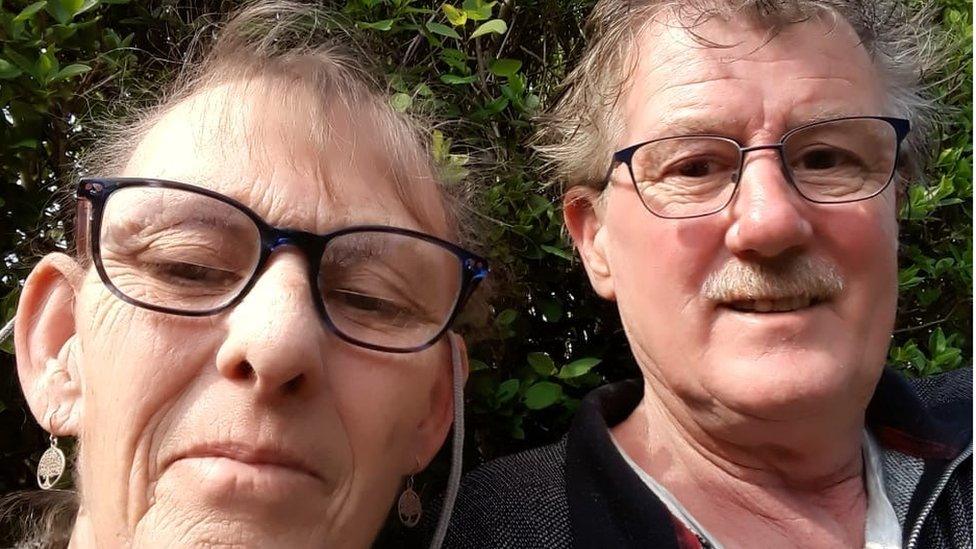
Joanna and Clive Williams received a call from their GP last week.
"I think it's brilliant that GP's are contacting at-risk patients in this way."
Fishing tackle supplier Clive Williams, from Horsham in West Sussex, is caring for his wife Joanna, 63, at home as she has a brain tumour.
He was worried about going to a surgery because of the risk of infection - and because he did not want to add extra burden to his stretched local practice.
"I felt it would be a nuisance to get in touch with them," the 64-year-old said. "But my GP is absolutely brilliant. He contacted me out of the blue to have a little chat about my wife as she struggles with her memory."
More about this story
The Shared Data Unit makes data journalism available to news organisations across the media industry, as part of a partnership between the BBC and the News Media Association.
For the full dataset, click here, external. Read more about the Local News Partnerships here.
- Published20 March 2020
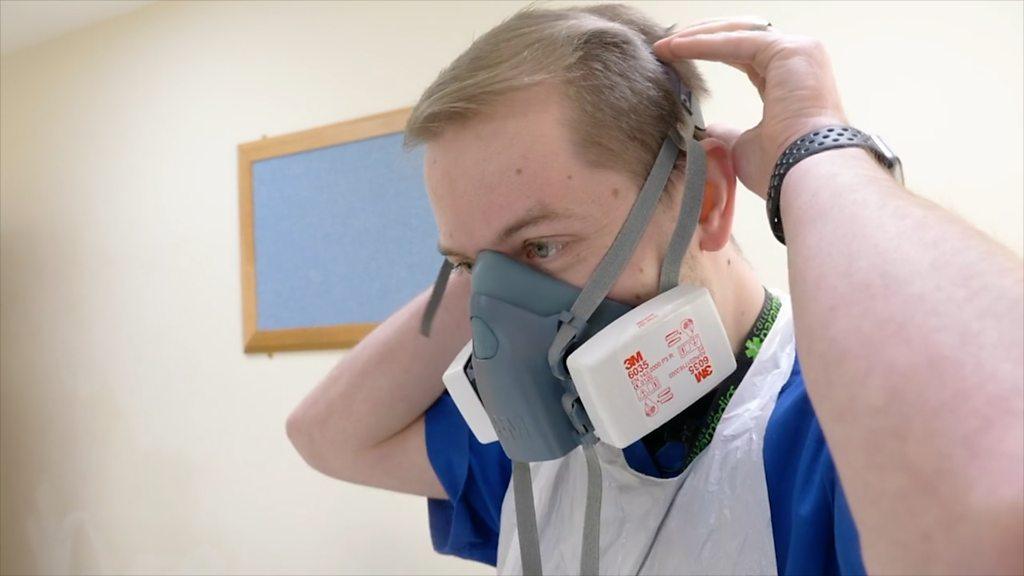
- Published16 March 2020
